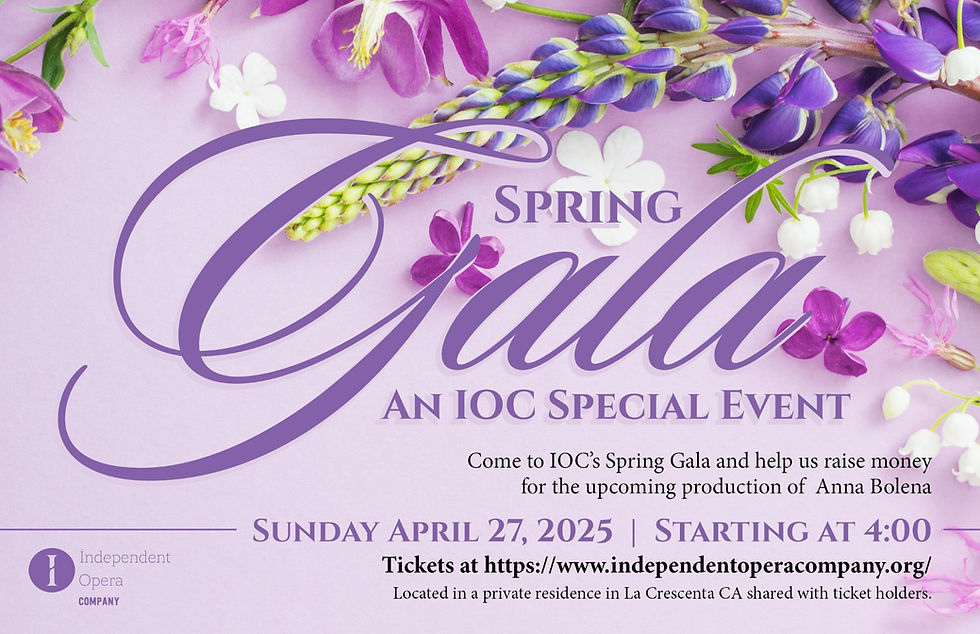The Seed Of Dream
- Galina Barskaya

- Apr 2, 2021
- 3 min read
Updated: May 26, 2021

As part of its IOC Stars Concert Series, Independent Opera Company is presenting a very special program – The Seed of Dream, a work dedicated to and inspired by the memory of the Holocaust. Ironically, without the enormous tragedy of the Holocaust, this beautiful work wouldn't exist.
Commissioned by Music of Remembrance and scored for baritone voice, cello and piano, The Seed of Dream sets several poems of Vilna Ghetto survivor Abraham Sutzkever (1913 - 2010) to new, English language translations by Pulitzer Prize winning poet C.K. Williams and Leonard Wolf.
The cycle begins in 1941 during the time of Sutzkever's imprisonment in the Vilna Ghetto and follows Sutkever's emotional and spiritual journey from the tragic murders of his mother and infant son to his ultimate escape into the nearby forests of Narocz in 1944.
"Sutzkever consistently produced poems of great artistry under the most dire of circumstances," writes Laitman. "These first-person accounts, written between 1941 and 1944, not only bear witness to the destruction around him, but to his undying belief in the beauty of the word and the world."
The Seed of Dream had its premiere performance on May 9, 2005 at MOR’s Holocaust Remembrance concert at Benaroya Hall, in Seattle, WA.
The work consists of five parts. It starts with the heavy and tragic "I Lie in This Coffin", then goes into frantic dance of "A Load Of Shoes". The third number, the tender and bittersweet "To My Child", is perhaps the deepest and most complex part of the work. The next movement is the mysterious "Beneath the Whiteness of Your Stars", which combines another song composed in the Vilna Ghetto by Abraham Brudno with a Yiddish folk tune. The closing number "No Sad Songs Please" brings the whole work to its cathartic ending.
Director and singer Aaron Ball has chosen to highlight in this production the dichotomy of devastating tragedy and radiant hope. "I've invited our wonderful, small ensemble to really deep-dive into our own personal tragedies - not to re-live them (that would be awful!), but to look under the heavy rocks in the dark corners of our very different histories so that we might find the hope and beauty underneath. It is precisely this hope and beauty that propels people to a better life in a better future, I think. The irony is that we can never seem to get to that wonderful, light place without remembering the darkness that once covered it. It has been an emotional and cathartic experience bringing this production up, because it has been so deeply personal for each of us. I've also invited each of us to share these moments in our lives on-camera for this production. I am also quite full of gratitude to Lori [Laitman] for being so supportive of our small ensemble and this beautiful production of her masterful cycle."
Ball reminds us of Sutzkever's words in the poem "No Sad Songs Please," upon which the fifth and final movement of Laitman's cycle is based. "I love it when Sutzkever tells us, 'in memory's art is unexpected radiance!' It is exactly this idea that I've chosen to illuminate. It is an idea that is thematic across all five movements in both Latiman's sensitive musical treatment of the text and in Sutkever's poetry itself. It is also the whole idea, for me at least, around why we commemorate the memory of Holocaust atrocities on Yom HaShoah in the first place. It seems to be the story of the universe that all must walk through the metaphorical 'valley of the shadow of death' before coming to some place of enlightenment."



























Comments